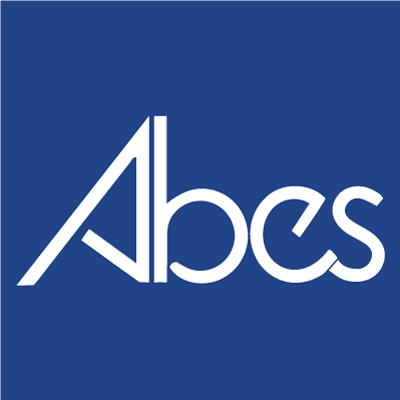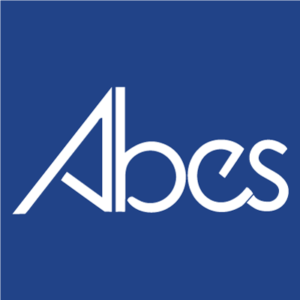Practical Nurses (PNs) fill a vital role in Alberta’s healthcare system. They work with physicians, Registered Nurses (RNs), and other professionals to provide high-quality patient care. This career path requires a formal diploma, registration with the College of Licensed Practical Nurses of Alberta (CLPNA), and a commitment to lifelong learning.
Below, you will find answers to frequently asked questions about pursuing a Practical Nursing Diploma in Alberta, from admission requirements to career opportunities.
1. What Does a Practical Nurse Do?
Practical Nurses in Alberta provide hands-on patient care under the direction of physicians and other healthcare professionals. Their responsibilities may include:
- Monitoring vital signs
- Administering medications
- Documenting patient progress
- Educating patients and families about care plans
- Assisting with daily living activities, such as personal hygiene
Licensed Practical Nurses (LPNs) are authorized to perform a range of duties, which may vary according to workplace policies and the specific needs of each patient. They collaborate with RNs, healthcare aides, and other team members to deliver holistic care in hospitals, long-term care facilities, community clinics, and more.
2. What Are the Prerequisites for a Practical Nursing Diploma?
Before applying to a Practical Nursing Diploma program, you need to meet standard academic prerequisites. Admission requirements differ slightly among institutions but often include:
- High school diploma or equivalent
- English proficiency (often high school English 30-1 or 30-2 with a minimum grade)
- Biology 30 or equivalent
- Math requirements (often Math 20-1 or 20-2)
Schools might also ask for immunization records, police information checks, or references. Confirm specific requirements with your chosen institution, as each school may have its own criteria.
3. How Long Does a Practical Nursing Diploma Take?
The length of a Practical Nursing Diploma program in Alberta varies, but most approved programs require about two years of full-time study. This timeframe includes classroom instruction, laboratory work, and clinical placements. Accelerated pathways may exist, but students typically need to complete at least four academic terms plus clinical practicums.
Timeframes can also differ based on part-time or distance education options, although not all colleges provide these formats. If you need scheduling flexibility, discuss part-time or alternative study methods with the admissions team before enrolling.
4. Is There a Licensing Exam for Practical Nurses in Alberta?
Yes. After graduating from an approved Practical Nursing program, you need to pass the Canadian Practical Nurse Registration Examination (CPNRE). This national exam measures your competency to practice safely and effectively as a Licensed Practical Nurse.
In Alberta, licensure and registration fall under the jurisdiction of the College of Licensed Practical Nurses of Alberta (CLPNA). After passing the CPNRE, you must meet all CLPNA registration requirements, which may include additional documentation and fees. Maintaining a valid practice permit requires annual renewal and may involve continuing competence activities.
5. What Skills Are Required to Succeed as a Practical Nurse?
Practical Nursing demands both technical and interpersonal skills. Some core competencies include:
- Clinical knowledge: Knowing how to assess patients, interpret clinical data, and carry out care procedures
- Communication skills: Interacting clearly with patients, families, and other healthcare professionals
- Organizational ability: Managing multiple tasks, keeping accurate records, and prioritizing patient needs
- Compassion: Showing empathy while maintaining professionalism
- Adaptability: Responding to changing patient conditions and shifting team responsibilities
Teamwork is essential because PNs often collaborate with RNs, healthcare aides, and administrative staff. Strong critical thinking is also important, as Practical Nurses may be required to make quick decisions regarding patient care.
6. Where Do Practical Nurses Typically Work?
Licensed Practical Nurses work in diverse settings across Alberta:
- Hospitals: Medical-surgical units, emergency departments, outpatient clinics
- Long-term care facilities: Nursing homes, assisted living centers, palliative care units
- Community healthcare: Public health clinics, home care, community mental health
- Private clinics: Family practices, specialty clinics, and outpatient centers
- Occupational health settings: Workplace clinics, industrial health programs
Your workplace may determine your scope of duties, scheduling, and patient population. Many positions involve shift work, including nights, weekends, and holidays. If you are flexible, you may find plenty of opportunities to gain varied clinical experience.
7. How Does the Scope of Practice Compare to RNs?
Practical Nurses and Registered Nurses both provide essential care, but differences exist in their scope of practice, level of responsibility, and educational background:
- Training: RNs complete a four-year Bachelor of Nursing degree, while PNs typically complete a two-year diploma.
- Scope: RNs often handle complex care tasks and lead healthcare teams. PNs focus on foundational nursing duties and implement care within defined practice parameters.
- Autonomy: RNs tend to have a broader scope of independent decision-making, though experienced PNs can gain more responsibilities over time.
In many workplaces, PNs and RNs collaborate to ensure comprehensive patient care. The specific tasks a PN can perform are guided by the employer and the CLPNA’s standards of practice.
8. What Is the Employment Outlook for Practical Nurses in Alberta?
Demand for Practical Nurses in Alberta remains strong due to the province’s aging population and ongoing healthcare needs. According to the Government of Alberta’s occupational forecasts, healthcare roles are expected to maintain steady growth. Alberta’s hospitals, long-term care centers, and community clinics often seek LPNs to address staffing shortages and ensure continuity of patient care.
While economic conditions can affect provincial health funding, the need for front-line healthcare professionals tends to stay consistent and even increase with population growth. Graduates with clinical experience, strong communication skills, and adaptability typically have favourable employment prospects.
9. How Much Do Practical Nurses Earn in Alberta?
Wages vary based on experience, location, and employer type. According to Canada’s Job Bank and the Government of Alberta’s wage data, Licensed Practical Nurses earn a median hourly wage that often ranges from around $26 to $40 per hour. Entry-level PNs start near the lower end, while experienced PNs in specialized settings may earn higher rates.
Full-time PNs in unionized positions may also receive shift differentials, overtime pay, and benefits packages that include extended health coverage and retirement plans. Reviewing job postings and collective agreements can help you understand earning potential and benefits in your chosen area.
H2: 10. Are There Opportunities for Career Advancement?
Practical Nurses can advance through specialized training or further education:
- Post-diploma certificates: Specializations in areas like gerontology, mental health, or perioperative nursing
- Leadership roles: Charge nurse or team lead responsibilities with experience and additional certifications
- Bridging programs: Opportunities to bridge from PN to RN by completing additional coursework and meeting admission requirements
Career growth often depends on your goals, continuing education, and willingness to pursue new clinical skills. Some PNs also move into healthcare administration, nursing education, or quality improvement after gaining relevant experience and credentials.
11. How Do Clinical Placements Work in a Practical Nursing Diploma Program?
Clinical placements are a core part of any Practical Nursing program. Students learn to apply classroom and lab knowledge in real-world settings. These placements are typically organized by the school and may occur in various healthcare environments. During placements, students work under the supervision of an instructor or a designated preceptor.
Each placement focuses on specific learning objectives, such as acute care, long-term care, or community health. By completing multiple placements, students gain a broader understanding of patient care and develop confidence in their skills. Attendance, professional behaviour, and meeting performance criteria are mandatory to satisfy program and licensing requirements.
12. How Do I Start My Practical Nursing Education?
Starting your education in Practical Nursing involves these steps:
- Research programs: Compare diploma offerings from accredited institutions recognized by the CLPNA.
- Check prerequisites: Confirm you meet academic requirements such as English and Biology credits.
- Contact admissions: Reach out to schools for program details, tuition fees, and enrollment steps.
- Submit documents: Provide transcripts, police checks, immunization records, or other requested materials.
- Attend an orientation: Once admitted, complete any orientation sessions and fulfill pre-clinical requirements.
Choosing the right institution matters. Seek a program that prioritizes hands-on learning, strong student support, and comprehensive exam preparation. Look for a proven track record in graduate success, licensing exam pass rates, and clinical partnerships across Alberta.
Final Thoughts & Next Steps
A Practical Nursing Diploma offers a direct path to a fulfilling healthcare career. This role involves caring for diverse patient populations and contributing to the well-being of communities. Alberta’s strong demand for healthcare services ensures consistent job opportunities for newly licensed Practical Nurses.
Ready to take the next step toward becoming a Licensed Practical Nurse?
Explore the Practical Nursing Diploma at ABES to find out how our comprehensive curriculum, experienced instructors, and career-focused training can help you succeed. Our admissions team is here to answer your questions and guide you from application to graduation.
Empower your future in healthcare by taking action today. Contact ABES today to learn more, request information, or start your enrollment process. We look forward to helping you join Alberta’s dynamic community of Licensed Practical Nurses.


